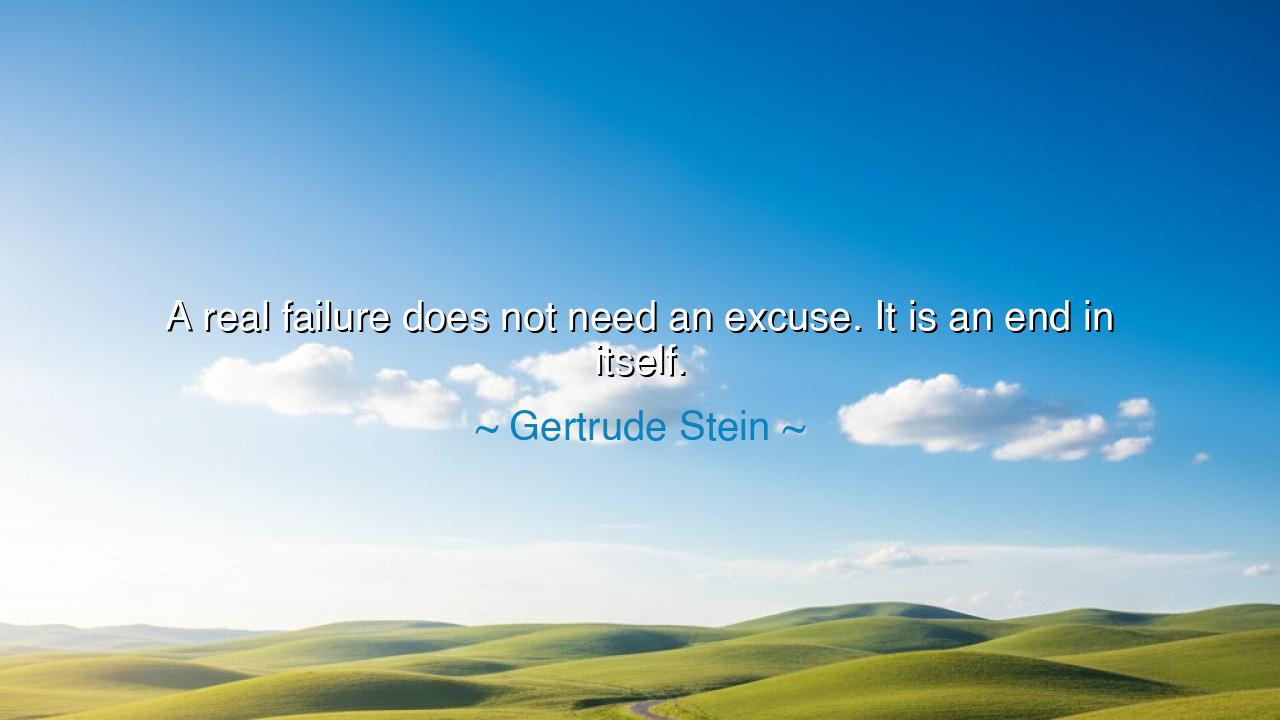
A real failure does not need an excuse. It is an end in itself.






Host: The room feels calm, the soft light of the evening casting a warm, reflective glow across the space. Outside, the world continues its usual rhythm, but inside, the atmosphere feels thoughtful, as if the conversation is about to touch on deeper themes of failure and personal growth. Jeeny sits at the table, her fingers lightly tracing the rim of her cup, her expression contemplative. Jack stands near the window, arms crossed, looking out at the street below.
Jeeny: (her voice gentle, yet filled with curiosity) “You ever think about how we often try to justify or explain away failure? How, instead of accepting it, we make excuses or find reasons for why it happened?”
Jack: (glancing over at her, his voice dry, but intrigued) “Failure and excuses? Yeah, it’s funny how we often feel the need to explain why we fail, to make it feel like less of a defeat. But sometimes, the real value in failure is in acknowledging it for what it is. What made you think about it?”
Jeeny: (nodding slowly, a small smile forming as she shares her thought) “I was thinking about something Gertrude Stein said: ‘A real failure does not need an excuse. It is an end in itself.’ It made me reflect on how we often try to avoid the feeling of failure by justifying it, when sometimes the real power comes from simply accepting it and moving forward.”
Jack: (pauses, considering her words carefully) “So, she’s saying that failure, when it’s real and genuine, doesn’t need to be explained away. It’s its own conclusion, its own moment of closure? That instead of making excuses or trying to find a reason, we should simply accept failure and learn from it?”
Jeeny: (smiling more deeply now, her eyes steady as she explains further) “Exactly. Stein’s point is that failure doesn’t need validation or excuses. It’s part of the journey, and it’s just as important as success. When we fail, instead of hiding behind reasons or justifications, we should embrace it as a moment in itself, something that doesn’t need to be fixed or explained—it just is. And from that, we can learn and grow.”
Host: Jeeny’s words seem to linger in the room, creating a shift in the conversation about how we view and respond to failure. Jack stands still, his expression softening as he processes the deeper message behind Stein’s statement. The world outside continues its rhythm, but inside, the conversation feels rooted in a more profound understanding of failure’s role in personal growth.
Jack: (his voice quieter now, almost reflective) “I see what she means. We often look for ways to rationalize failure, to soften it, but sometimes the most powerful thing is simply accepting it. Failure doesn’t need a reason—it’s part of the process. And when we stop making excuses, we can actually learn something real from it.”
Jeeny: (nodding slowly, her voice calm, yet filled with quiet strength) “Exactly. Failure is a natural part of life, not something to hide from or justify. It’s in those moments that we find the most growth, when we accept it fully and move on with a clearer sense of what needs to be done next. It’s not about avoiding failure—it’s about how we respond to it.”
Jack: (pauses, a small smile forming on his face as the idea settles in) “It’s liberating, isn’t it? To realize that failure is just another part of the journey, not something that needs to be fixed or avoided. By accepting it, we make room for the next step, for the lessons that come after.”
Jeeny: (smiling warmly, her voice gentle, yet filled with wisdom) “Exactly. When we let go of the need for excuses or explanations, we allow ourselves to truly learn from failure. It’s just one chapter in a larger story, and it doesn’t define us. It simply leads us to the next opportunity for growth.”
Host: The room feels lighter now, as though the conversation has shifted into a deeper understanding of failure and how we approach it. Jack turns from the window, his posture more relaxed, his thoughts clearly reflecting on the importance of accepting failure as part of the process. Jeeny watches him, content in the realization that true growth comes not from avoiding failure, but from embracing it without justification. The world outside continues its rhythm, but inside, there’s a shared understanding that failure is not something to be feared or explained—it is simply a step in the ongoing journey of growth.






AAdministratorAdministrator
Welcome, honored guests. Please leave a comment, we will respond soon